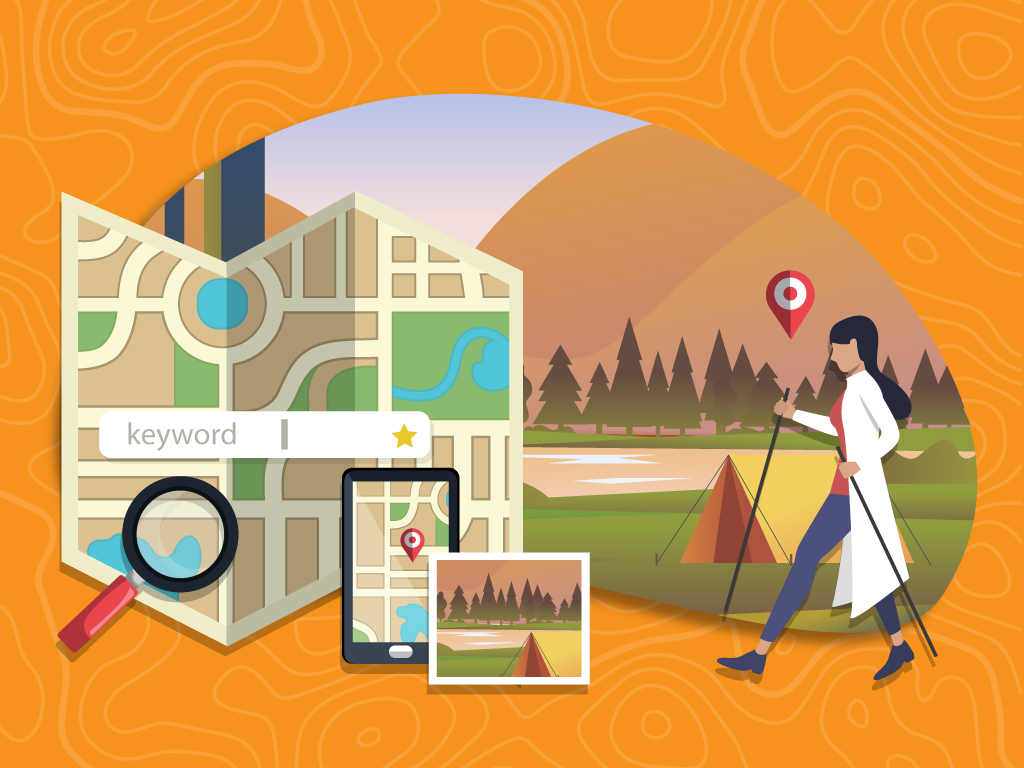Importance of Geotagging your Keywords for SEO
What is the importance of geotagging in SEO?
Quick Answer: Geotagging your keywords is very important for local SEO, and is even considered a required component. Proper use of these keywords for your targeted locations can tailored your content to your audience’s needs, improve your ranking in search results, and even result in higher chances of conversions.
Overview
Have you ever looked at your Google Analytics report and notice that you are getting traffic from areas and countries that are out of your service area? In SEO, it’s easy to enjoy all the traffic that you can get but this might also be an indication that there is something wrong with your targeting.
One of the beauties of SEO is that the traffic you are getting is relevant. How else are they going to land on your website if they didn’t search something related to it right? However, if you are getting traffic from areas not within the reach of your business, they might not really be relevant to your business and you should start realigning your strategies by geotagging your keywords.
What is keyword geotagging?
In general, geotagging is the process of identifying the exact location of media through latitude and longitude coordinates. But don’t worry, we are not going into the nitty-gritty details like that.
In SEO, keyword geotagging simply means placing the name of your target location in your keywords. The geotag in the keyword can be placed wherever you want as long as it fits the context of the keyword. It can be a specific city, town, country, etc.
For example:
Non-geotagged keyword – gaming computer
Geotagged keyword -gaming computer philippines
Why geotag your keywords?
Geotagging your keywords plays a huge role in Local SEO. When a user does a search on Google, it tries to filter data as much as possible to provide the user with the best search results. One of the most important factors here is the location.
Google doesn’t have access to the location of the device of a user at all times. In this case, the keyword plays a huge role in the results. Users tend to place the exact location of their liking when they search. This because there are huge differences in the results when Google is able to identify the exact location as to when it cannot. I’ll show an example later on.
Proper geotag on your keywords can also be an indication of intent. For example, a user searching the keyword “mountain bike” may either mean he/she is looking to buy a bike or just looking for general information about mountain bikes.
On the other hand, if he/she searches “mountain bike manila”, there is now a higher probability that this user is really intending to buy a bike in the Manila area.
Geotagged keyword vs non-geotagged keyword
Here’s an example of the difference between geotagged keywords vs non-geotagged keywords. For this example, we are using the keyword “gaming computer” and we are going to use Philippines as the location and Google Philippines as our search engine.
Here are screenshots of the search results for “gaming computer”:


As you can see, the first search result is an international e-commerce store for gaming computers while the second one is a local e-commerce store in the Philippines. If we look at the rest of the search results, more international websites appear such as MSI.com and OriginPC.com. There is also a search result from Wikipedia which is informational so we could see here that Google isn’t really able to identify if we are going to buy or we’re just looking for gaming computer information.
Now let’s use the keyword “gaming computer philippines” with Philippines as our geotag. Here are the screenshots:
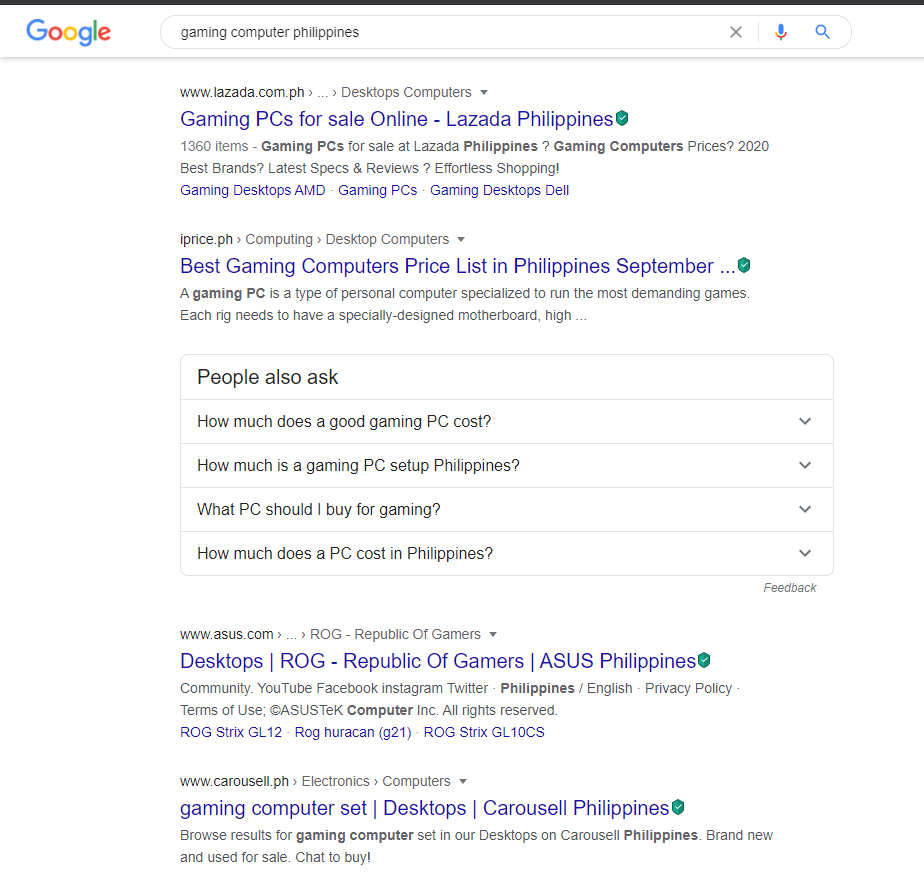
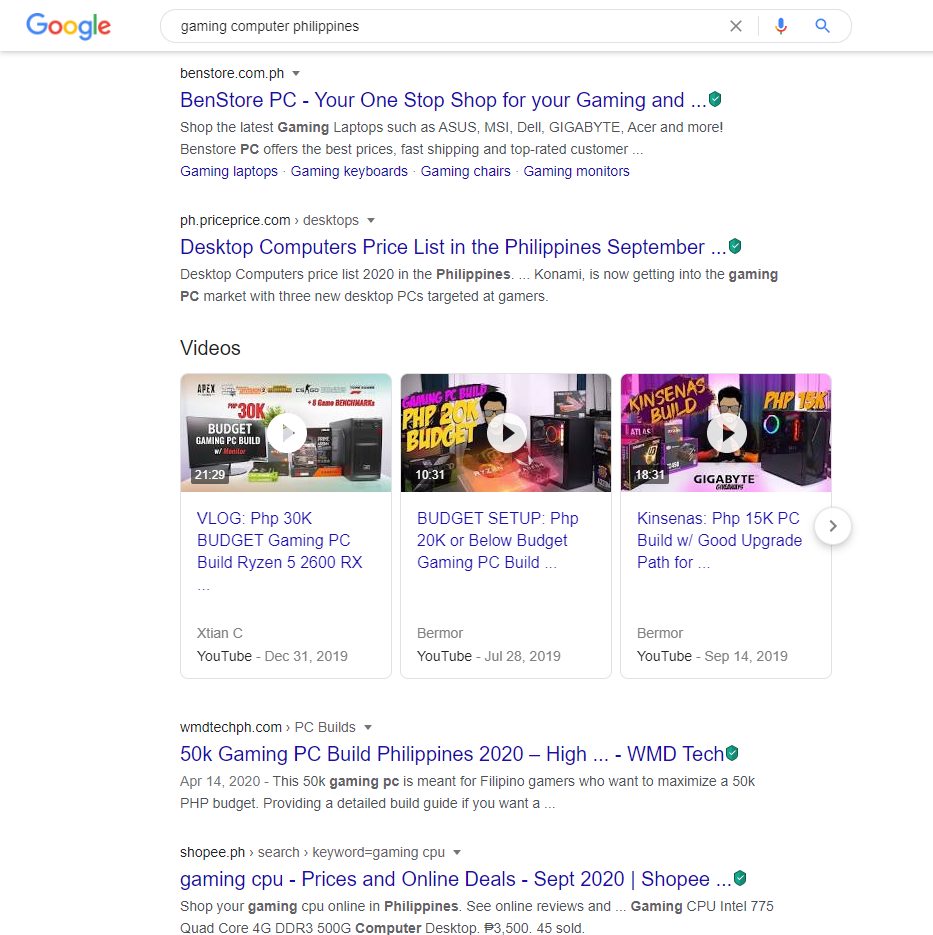
You will notice that the search results are more refined. We have Lazada and Carousell, two e-commerce stores in the Philippines. We also have iPrice.ph, a website that curates the latest prices in the Philippines, and we have ASUS Philippines.
That’s how powerful geotagging keywords are for Local SEO. If you’re a business owner in the Philippines, you would want to be appearing for searches specifically in the Philippines.
Another thing to note here is the difference in competing for non-geotagged keywords vs geotagged keywords.
I used Mangools’ KWFinder to analyze the data.
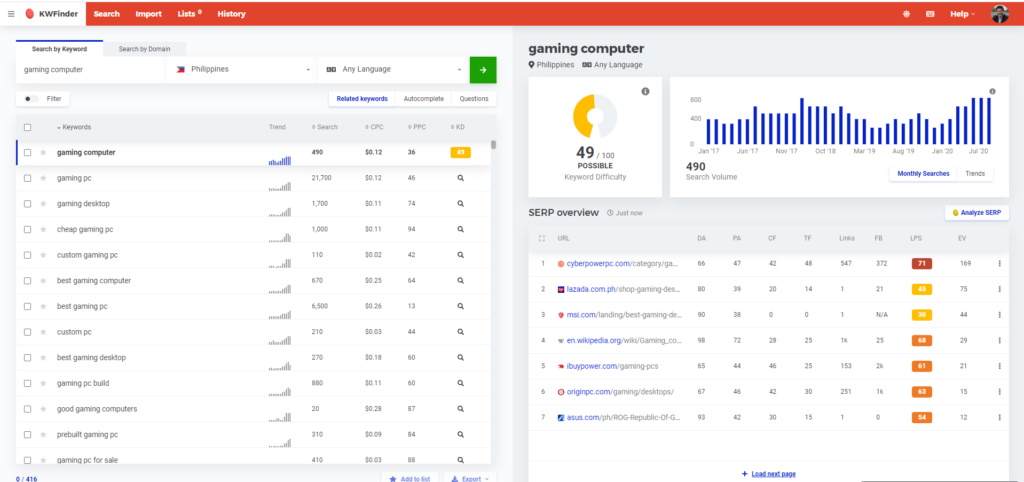
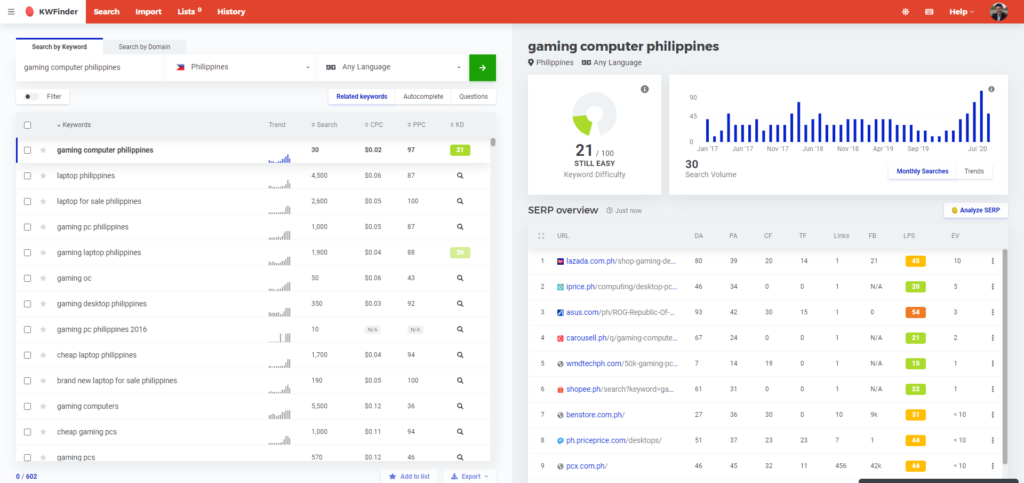
You would see in the screenshots above that the non-geotagged keyword has a higher keyword difficulty that the geotagged one. You would also notice a difference between keyword volume but that is common to geotagged keywords so don’t worry too much about it. It’s just because the searches are more filtered thus less search volume.
Where do you place the geotagged keyword?
You could basically place your geotagged keywords in all the places where you would put your target keywords. Meaning title tags, headings, and content. The most important of all places is the title tag and next would be the URL slug. Here’s an example.
One of our clients is offering epoxy and polyurethane flooring here in the Philippines. So I made the title tag of their homepage “Epoxy and Polyurethane Flooring Philippines”. For the keyword polyurethane flooring Philippines, they are actually number 1.

If you are going to do this for your landing pages and other blog posts, always remember to treat it just like any other keyword out there. Do not over-optimized and focus on making things better and easier for the user.
Key takeaway
Think of geotagging your keywords as another way to make user-experience better because at least users would know that when they go to your website, it is a business that is in their area are serves their area.
Keyword geotagging is a powerful strategy on its own. You can mix and match if you want to go for higher volume keywords but I’m sure that keyword geotagging alone will give your website users that are really interested in your product and business thus having a higher chance of a conversion.
